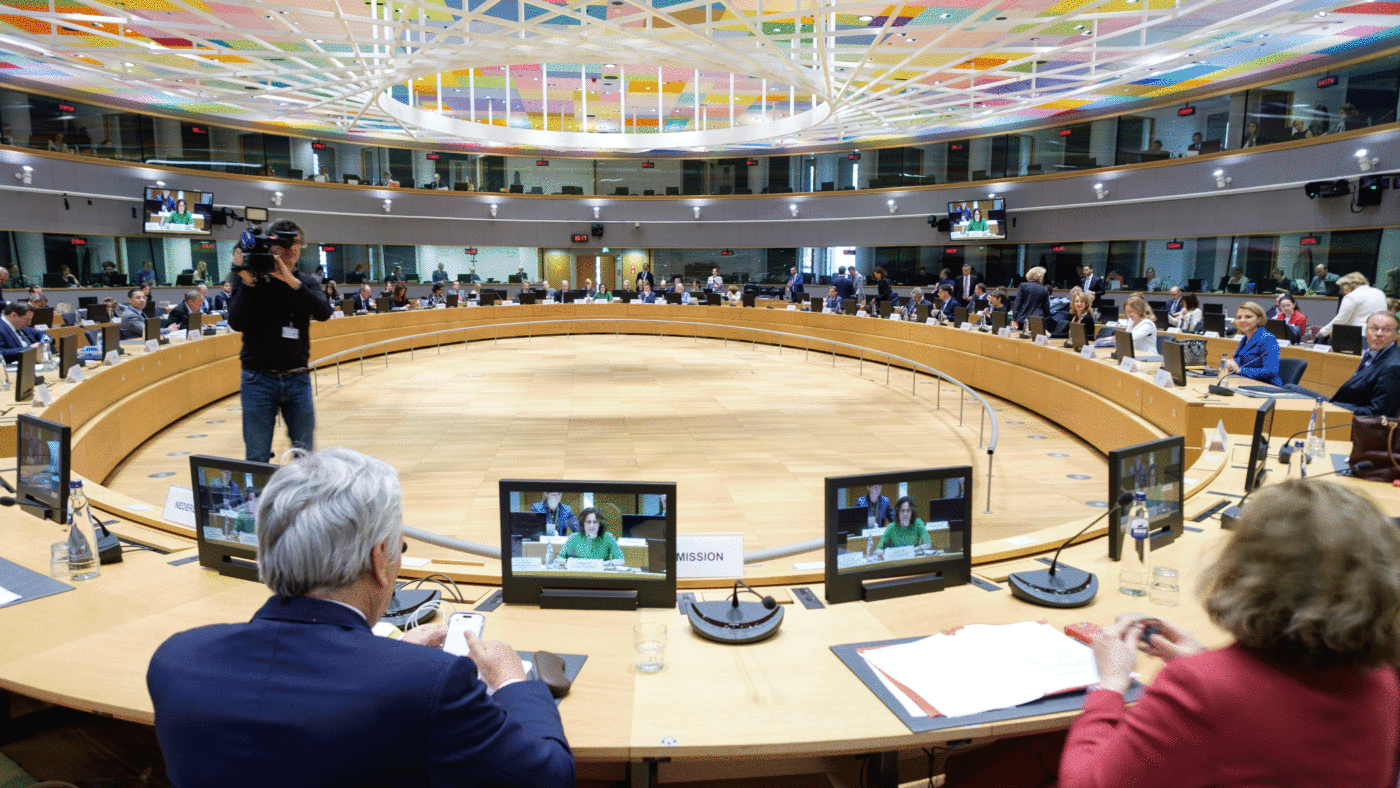Is it time for the EU to introduce qualified majority voting on foreign policy matters?
The foreign ministers of seven member states have made an eloquent case for such a change in a recent article for Politico. Their piece is striking for several reasons. First, unlike most earlier attempts to push for deeper integration, it brings together ministers from all over Europe – from Germany and Spain through the Benelux countries to Romania and Slovenia.
Second, unlike the pipe dreams of Europe’s federalisation from ten or so years ago, the article is realistic in its aims by focusing ‘only on questions of EU Foreign and Security Policy and utilising provisions already built into the [Treaty on European Union] in a more flexible way that can work for everyone’.
The ministers’ goal to improve the EU’s ‘ability to take swift and resolute action’ is laudable, especially against the background of emerging threats to Europe’s security. However, their focus on decision-making procedures in the Council of the EU is misplaced. Their proposal presents a legal, technical solution to what is a deeply political challenge. In fact, what is holding the EU back today are not the strictures of unanimity per se. Rather, those constraints reflect the underlying disagreements between member states, which would be exposed by majoritarian decision-making in a more direct and raw fashion.
To be sure, there is some value in the three propositions that the article makes, all within the scope of existing treaties.
First, the authors suggest a greater use of ‘constructive abstentions’, as opposed to veto. The provision outlined in Article 31(1) of the Treaty on European Union allows member states to extricate themselves from collective decisions that they do not like, without standing in the way of their implementation by others.
Second, they want to see a greater use of qualified majority voting in areas as defined by Article 31(2), where the EU’s overall strategic objective has been set and the question is simply the manner of its implementation.
Third, they call for the use of the ‘passerelle’ clause (Article 31(3)) under which the Council can decide, unanimously, to use qualified majority as its default decision-making procedure in particular areas of foreign policy.
The three proposals may help speed up the decision-making process if EU governments act in good faith and absent fundamental clashes of national interest. But that is also the main reason why they represent only a form of procedural tinkering at the margins. What makes the EU’s decision making so difficult is precisely that some governments act strategically by trading their consent for concessions on subjects unrelated to those which matter to them, while also holding contradictory views on foreign policy subjects that they see as vital to their national interests.
Sure, one may share the hope that more ‘constructive abstentions’ are used as opposed to vetoes, but it remains just that – a hope. All three proposals allow for exceptions on grounds of fundamental national interests, which are bound to be used with as much vigour as the currently existing veto power.
Of course, the alternative – a treaty change that would allow for genuine qualified majority voting – is out of reach. But it is easy to see why this option would make things even worse even if it were realistic. The prospect of being routinely outvoted on foreign policy matters that governments see as part of their vital interests would lead to a massive anti-EU backlash, if not push concerned countries to the exit.
In a different context, the EU saw the perils of majoritarianism applied to divisive subjects back in September 2015 with the now-infamous Council decision to adopt a system of asylum-seeker relocation quotas by qualified majority over dissenting voices from eastern Europe – most prominently Viktor Orbán’s Hungary. Unlike foreign policy, the decision fell under a rubric governed by qualified majority. Until then, however the Council sought consensus – particularly on sensitive, controversy-laden topics such as asylum policy.
Qualified majority was not the ‘Get Out of Jail Free’ card that some had hoped. Instead, it helped crystalise opposition to the EU around a highly salient topic at the worst possible time, arguably contributing to the victory of the Law and Justice Party in Poland in October that year. Worse still, the quota system has been never implemented by the dissenting countries, despite becoming part of EU law.
Reassuringly, there is little risk that the three proposals floated by the foreign ministers would a have similar effect today, in part because the default mode of decision-making in foreign policy is based on unanimity. Their pitch, however, is a distraction from what the Council really needs – a gradual rebuilding of trust, damaged over the years by behaviour of the EU’s bigger actors in particular, and an investment in a shared strategic culture, which would make it easier to reach unanimous decisions.
Of course, there may be instances when such decisions are impossible because of the underlying differences of views between member states. But that should merely serve as a reminder that European unity or ‘sovereignty’ are not ends in themselves. After all, the EU is not a unitary state in the making but only one of many platforms for cooperation among European democracies, some of which are outside the EU, yet crucial for Europe’s security. It is time European leaders understood that reconciling the EU with its more modest role does not mean giving up Europe’s security, power, and influence over global events writ large – quite the contrary.
Click here to subscribe to our daily briefing – the best pieces from CapX and across the web.
CapX depends on the generosity of its readers. If you value what we do, please consider making a donation.


